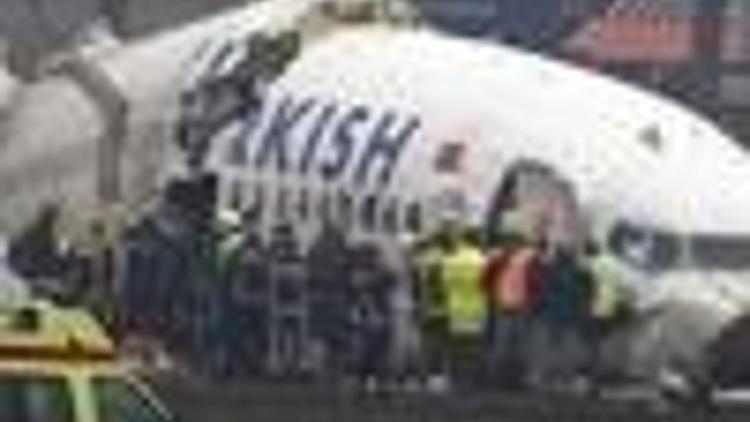Experts say Turkish Airlines plane put down on landing, did not crash
Güncelleme Tarihi:

The Turkish Airlines plane did not crash in Amsterdam on Wednesday, but instead landed short of the runway, aviation experts said. The crash in the Netherlands and the recent landing of a jet in New York's Hudson River also showed how safe modern aircraft have become, they added.
Photo Ed: Turkish Airlines plane crashes in Amsterdam
Click to listen control tower clearing plane for landing
"When we look at the wreckage, it is seen that the plane was struck on the right engine. That means a part of the plane hit the ground during landing. I think this plane did not crash. It is likely that it landed short of the runway," Ugur Cebeci, aviation expert of Hurriyet daily said. �
A Boeing 737-800 passenger plane operated by Turkish Airlines crashed during landing
The chairman of Turkish Airlines also echoed the views of Cebeci. Candan Karlitekin told a press conference that the plane landed on the ground.
"According to the information we received, the plane landed short of the runway. The rear of the plane was damaged, however there is no problem regarding the front section," he added. �
Charles Bremner, a qualified pilot, wrote in an analysis at The Times website that the position of the wrecked aircraft, the lack of fire and reports of survivors shows that it hit the ground in a relatively level attitude and it would have been slowing down to a final approach speed of about 140 knots when its flight came to a premature end.
Bremner said one witness described the plane's nose reportedly pitching up quite steeply, the pilot recovered a normal altitude, however the nose was said to have then fallen again before dropping like a piece of lead into the field.
"This description could be consistent with a stall - in which the aircraft's wings suddenly stop producing lift due to slow speed or a sudden maneuver. However, systems on modern jets are designed to avoid getting anywhere near stalls, which is the oldest trap for aircraft on approach to landing," Bremner added.
INCREASED AIRLINE SAFETY
It was clear from the
In many previous crashes, fatalities were caused by fire, Daly told CNN. But in the 1980s many new laws came in, especially in the
The pictures from the
He said there was "precious little" in common between the two accidents unless the
The Turkish Airlines Boeing 737-800 that crashed in
“It is a tribute to Boeing and Airbus that their aircraft are so safe. Most accidents now are caused by single causes, like bird strikes, that you simply can't legislate against."
"You would be optimistic that they would be quite survivable in an accident." Daly said the Turkish aviation industry has a "pretty good record" of safety, and that Turkish Airlines, the national carrier, has a "very good record".
The airline's last accident was of a small commuter jet in 2003, he said. It was a fatal crash that happened at a remote airfield in eastern
Turkish Airlines has a good safety record. It is rated a four star airline by Skytrax, industry research advisors to the world airline and air transport industry. This is the same rating as Virgin and British Airways.
The last crash involving a Turkish Airlines plane was in 2003 when 65 people died in an accident in eastern Turkey.
"EXTRAORDINARILY ROBUST AIRCRAFT"
Another airline expert, Philip Butterworth-Hayes, said the safety of the Boeing 737 along with the five runways of
"The 737 is an extraordinarily robust aircraft," Butterworth-Hayes, editor of Air Traffic Management Insight, told CNN.
Both the
He said the pilot appeared to have control of the plane a long way down its approach to the airport, adding that it was too soon to speculate about the cause of Wednesday's crash.

